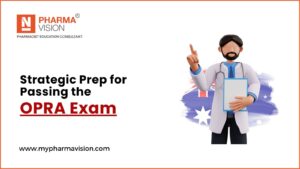The role of a clinical pharmacist is multifaceted, involving direct patient care, collaboration with healthcare professionals, and a strong focus on optimizing medication therapy. This blog takes you through a typical day in the life of a clinical pharmacist, showcasing the vital contributions they make to patient health and the healthcare system.
Morning: Reviewing Patient Charts and Medication Therapy
- 7:00 AM – Start of the Day
A clinical pharmacist’s day often begins early. Arriving at the hospital or clinic, the first task is to review patient charts. This involves examining medical histories, current medication regimens, laboratory results, and physician notes. The goal is to identify potential medication-related problems, such as drug interactions, duplications, or dosing errors. - 8:00 AM – Interdisciplinary Rounds
Clinical pharmacists participate in interdisciplinary rounds with physicians, nurses, and other healthcare professionals. During these rounds, they discuss each patient’s case, providing expert advice on medication management. Their input is crucial in developing and adjusting treatment plans, ensuring that medications are used safely and effectively. - 9:30 AM – Patient Consultations
After rounds, the clinical pharmacist conducts one-on-one consultations with patients. These sessions focus on medication education, adherence strategies, and addressing any concerns patients may have about their therapy. By empowering patients with knowledge, clinical pharmacists play a key role in improving health outcomes.
Midday: Collaborating with Healthcare Teams and Conducting Research
- 11:00 AM – Medication Reconciliation
Medication reconciliation is a critical process that ensures patients’ medication lists are accurate and complete. Clinical pharmacists compare the medications patients are currently taking with new orders and prescriptions to prevent errors. This task is particularly important during transitions of care, such as hospital admissions and discharges. - 12:00 PM – Lunch and Networking
Lunchtime offers an opportunity for clinical pharmacists to network with colleagues, attend professional development sessions, or simply take a break to recharge. Staying updated on the latest advancements in pharmacy practice is essential, and lunchtime seminars or journal clubs provide valuable learning opportunities. - 1:00 PM – Research and Clinical Trials
Clinical pharmacists often engage in research activities, including clinical trials and studies aimed at improving medication therapy. This part of the day might involve designing research protocols, collecting and analyzing data, or collaborating with research teams. Their work contributes to the development of new medications and treatment guidelines.
Afternoon: Medication Management and Continuing Education
- 2:30 PM – Pharmacotherapy Consults
Physicians and healthcare teams frequently consult clinical pharmacists for their expertise in pharmacotherapy. These consults involve evaluating complex cases, recommending alternative treatments, and providing detailed drug information. Clinical pharmacists ensure that therapies are evidence-based and tailored to individual patient needs. - 4:00 PM – Continuing Education and Professional Development
The field of pharmacy is constantly evolving, and clinical pharmacists must stay abreast of new developments. This time is often dedicated to continuing education activities, such as attending webinars, completing certification courses, or participating in professional organizations. Lifelong learning is a cornerstone of effective clinical pharmacy practice. - 5:00 PM – End of the Day
As the day winds down, clinical pharmacists review their work, update patient records, and prepare for the next day’s tasks. They may also communicate with patients or caregivers, ensuring continuity of care and addressing any last-minute concerns.
The Impact of Clinical Pharmacists
Clinical pharmacists are integral to the healthcare team, providing expertise that enhances patient care and safety. Their day-to-day activities, from patient consultations to research, reflect a deep commitment to optimizing medication therapy and improving health outcomes. By collaborating with other healthcare professionals and engaging in continuous learning, clinical pharmacists ensure that their patients receive the best possible care.
At Pharmavision, we recognize the vital role of clinical pharmacists and are dedicated to supporting pharmacy professionals in their journey. Whether you’re aspiring to become a clinical pharmacist or seeking to advance your career, our resources and guidance can help you achieve your goals.












